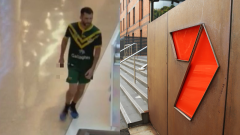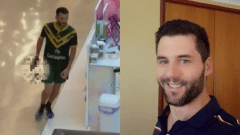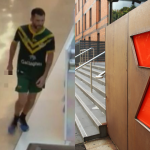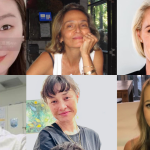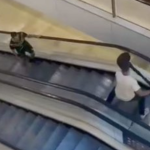
Amnesty International‘s Acting Indigenous Rights Manager Steph Cousins writes for PEDESTRIAN.TV about how each of the major parties plan to ‘close the gap’ and lower Indigenous incarceration rates.
In the last seven long weeks of electoral campaigning, our political leaders have been criss-crossing the country, making dozens and dozens of promises and spending commitments.
One of Amnesty’s key calls this election campaign is for the next Australian government to commit to real action to end the over-representation of Indigenous people in the criminal justice system and as victims of violence.
Right now, Indigenous children and young people are 24 times more likely to be locked up than their non-Indigenous peers. That’s right: 24 times.
This demands national leadership, and it must change.
So, when it comes to policy announcements aimed at closing the justice gap – how do the major parties stack up? Let’s take a look.
What has the Liberal-National Coalition promised?
In his Closing the Gap speech to the Parliament in February, the Prime Minister acknowledged the high rates of Indigenous young people being locked up, saying “we have failed to give them a place in society, in our community, and an alternative pathway where they can thrive”. While this sentiment is positive, so far the Liberal-National parties have done little to articulate what they will do to address this problem.
Positively, the Liberal-National coalition has announced that, of the $100 million in the budget for addressing violence against women and children, $25 million will be specifically for family violence against Aboriginal and Torres Strait Islander women and children. This will include initiatives to improve the accessibility and cultural relevance of services.
The Coalition has also flagged they will develop a “prison to work” scheme to help prevent people going back into the justice system.
These announcements are welcome, but they don’t go far enough. If the Liberal-National parties form government after 2 July, they’ll need to quickly come up with a more solid plan to close the justice gap.
What has the Australian Labor Party promised?
The ALP acknowledges Indigenous incarceration rates have reached a ‘crisis point’, and made a series of announcements in late 2015. The ALP came into this campaign with an existing pledge to adopt national justice targets, commence three justice reinvestment sites around Australia (similar to the justice reinvestment trial in Bourke), and build a nationally coordinated data and evidence base to monitor justice targets. Labor has also announced more funding for legal and family violence services.
During the campaign Labor also announced a policy proposal aimed at reducing the number of people in prison due to not being able to pay fines. Labor’s policy would give States and Territories the ability to recover fines through the tax and social security payments.
Reducing imprisonment for fine default is obviously a good thing, but it’s concerning that this would happen by docking people’s social security safety net – particularly given high rates of poverty and disadvantage in Aboriginal and Torres Strait Islander communities.
A much better approach would be to adopt what has worked in New South Wales, which has a policy allowing unpaid fines to be cleared through community work. It is an approach which is proven to work. If Labor forms government at the next election, this policy will need to be more thoroughly thought through, in partnership with Aboriginal and Torres Strait Islander leaders.
What have the Greens promised?
The Greens adopted the policy blueprint put forward by the Change the Record coalition, which is a group of Aboriginal and Torres Strait Islander peak bodies and community and human rights groups campaigning to reduce Indigenous incarceration and violence rates.
The Greens have also committed to providing $40 million in grant funding for protects to help reduce incarceration rates, and have committed to supporting abolition of mandatory sentencing which disproportionately impacts on Aboriginal and Torres Strait Islander peoples.
What’s next?
No matter who wins the election after Saturday the next Australian government needs to make it a priority to end the over-representation of Indigenous people, especially children, in the criminal justice system. We need real leadership and a genuine commitment to working with Aboriginal and Torres Strait Islander leaders to stop children from coming into contact with the justice system in the first place, get young people out of detention and support them to thrive in their communities
After the election make sure you tell your local MP you care about closing the justice gap and that you want action. Unless our leaders know we care, nothing will change.
Hey mates – if you wanna find out more, get around Amnesty’s election calls here, or learn more about the Community is Everything campaign for Indigenous youth justice here.
Photo: Getty / DEA / C. Dani I. Jeske.

